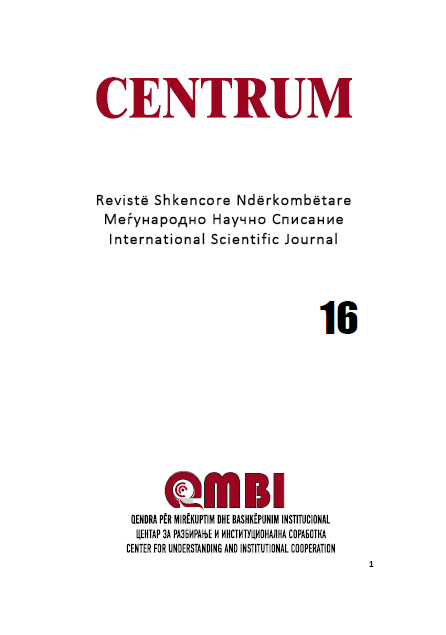NATO DHE RELACIONET ME BALLKANIN PERËNDIMOR (RASTI I BOSNJËS, KOSOVËS DHE MAQEDONISË SË VERIUT)
NATO AND RELATIONS WITH THE WESTERN BALKANS (CASE OF BOSNIA, KOSOVO AND NORTH MACEDONIA)
Author(s): Gzim RushitiSubject(s): International relations/trade, Geopolitics
Published by: Center for Understanding and Institutional Cooperation (CUIC)
Summary/Abstract: NATO was born in the years after World War II, to respond to the great political, economic and military pressure of the Soviet Union on Western democracies. NATO is legally established as an Alliance of independent states, who had as their common interest the preservation of national and world peace and security. The NATO Treaty was signed in Washington in 1949 and entered into force the same year. NATO's relations with the Balkans date back to the beginning of the Cold War. Following the fall of the Berlin Wall, the dissolution of the Soviet Union and the Warsaw Pact Bloc, and the dissolution of the former Yugoslavia, the Balkan countries declared NATO integration their strategic priority. One of the first and most serious challenges that NATO faced after the fall of the Berlin Wall was the Balkan crisis. Western military involvement in general and NATO - in the Bosnian conflict - began quickly. NATO used military intervention as a last resort to resolve the conflict in Kosovo after a period of widespread escalation of violence, repression and human rights abuses by Serbia against the civilian population in Kosovo. NATO's relations with the Republic of North Macedonia starting from 1993 until today have their oën special history, which includes a chronological period of almost thirty years, relations which reached their culmination on March 20, 2020 with the full membership of the Republic of Northern Macedonia in NATO as the thirtieth member state of the Alliance.
Journal: CENTRUM
- Issue Year: 2021
- Issue No: 16
- Page Range: 149-161
- Page Count: 13
- Language: Albanian

